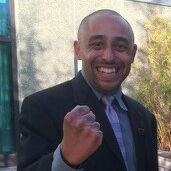 Many people are surprised when I tell them that prison saved my life. This is because they see prison as a dark place with no future for the inmates it houses. However, I chose to rise above the politics and stigmas of prison, and decided to do the time and not let the time do me.
Many people are surprised when I tell them that prison saved my life. This is because they see prison as a dark place with no future for the inmates it houses. However, I chose to rise above the politics and stigmas of prison, and decided to do the time and not let the time do me.
During my journey in prison, a college program alongside a few good men personally saved me.
I believe college programs such as the one I attended inside prison should be implemented in all prisons nationally, as should college prep classes inside juvenile detention centers. These types of programs will save countless lives and will build leaders who will soon return to their communities with the knowledge, ambition and passion for change.
Upon my arrival at California Rehabilitation Center in Norco, Calif., in 2010, I immediately noticed prison was a breeding ground for failure. Drugs were abundant and stabbings were common. In addition, many inmates became informants who were sent into protective custody because they got hooked on drugs and could not pay their drug debts. Certain gang members also attempted to build a reputation for their gang and of course for themselves, by participating in public “missions” (assaults or stabbings).
Fortunately, in 2011, I met an inmate who worked in the education department inside the prison. He asked me if I had ever considered completing my education while incarcerated. I told him I had tried finishing school countless times on the streets and just did not have the patience or the time to do it. He looked at me and said, “Well, maybe now is the time, because all you have now is time on your hands.” He added, “Just show up, and I will guide you as best as I can.”
I reluctantly agreed and showed up the following Monday to the education module. He began tutoring me for my GED exam, which I passed in September of 2011. Finally I had overcome the one obstacle that had eluded me for years. For the first time in my life, I felt empowered. But this was only the beginning ...
The following semester, I enrolled in I.I.P. (Incarcerated Individuals Program), a college program offered by the State of California and headed by Anti-Recidivism Coalition (A.R.C.) founder, Scott Budnick. I.I.P. helped inmates further educate themselves to obtain associate’s degrees as well as other certifications.
Participating in this college program while learning what interested me helped me forget that I was incarcerated. It was a freedom that I had searched for my entire life. Ironically, I had found freedom in prison.
Then came the day my friend, who helped and inspired me to pursue an education inside prison, paroled. It was both a happy and sad day for me. However, before he left, he asked me for one favor. He asked me to empower those incarcerated by helping them obtain an education just as he did for me.
My friend spoke with several teachers and recommended to them that I take over his position as a clerk for I.I.P. I was hired, and in the fall of 2012, I became the I.I.P. clerk and a full-time student. In addition, I completed 27 units that semester while making the Dean’s List for two different colleges with a GPA of 3.77!
I have much to thank my friend and my colleagues in the college program for. It was because of their efforts, as well as the dedication of Scott Budnick, that I did not quit. The college program provided me camaraderie unlike any other throughout my life. Here, we all worked hand in hand to further our education, our minds and our spirits. At the end of the 18 months I attended classes, I left one class shy of an associate’s degree, which I will be completing this fall semester at my local community college.
Because of my experience, I firmly believe correctional facilities can and should provide a quality education to inmates, especially those in the juvenile system. If institutions invest funds and time into college prep and other educational programs inside prisons, young men and women will one day return to society and no longer refer to themselves as “ex-convicts.” Instead, they will see themselves as solid “prospects” for universities and businesses within their communities. In addition, these future leaders will have acquired the proper credentials and knowledge to become young entrepreneurs who overcame an incredible misfortune.
If we have to incarcerate young people for years at a time, we must also provide them extensive resources, including a college education. The goal here should be reducing recidivism and saving taxpayers money while building integrity, responsibility and accountability within the lives of these young Americans.
Marlon Maldonado was born in Guatemala City, Guatemala, in 1979 and has lived in the United States since 1985. He is a mentor to youth throughout Los Angeles, Calif. As a Member of the Anti-Recidivism Coalition (A.R.C.), he speaks publicly on prison reform, human rights for incarcerated juveniles, as well immigration reform as he is currently appealing to maintain his legal status in this country through the Ninth Circuit Court of Appeals.
Pingback: Relato personal, EEUU: College in Prison Saves Lives | NotiProyecto B